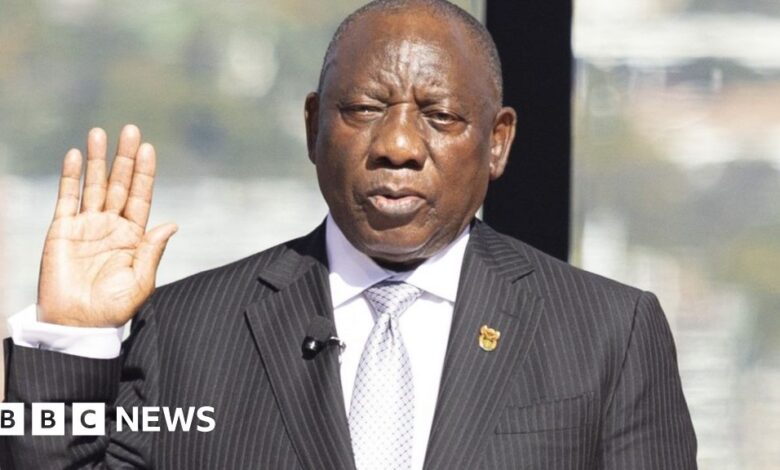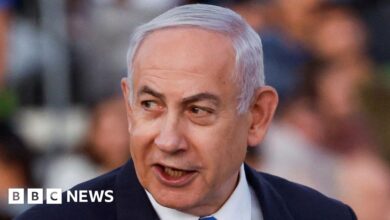Cyril Ramaphosa takes office for a second term as president of South Africa

South Africa’s Cyril Ramaphosa has been sworn in for a second term as president, despite failing to secure a parliamentary majority in last month’s election for his African National Congress (ANC).
Lawmakers re-elected him as president last week following an agreement between the ANC, longtime rival of the Democratic Alliance (DA), and other parties to form a coalition government.
The ANC, which has governed since the end of apartheid in 1994, lost its majority for the first time after a May 29 election that had no outright winner.
Many officials, including several African heads of state, will attend the ceremony.
“I swear that I will be loyal to the Republic of South Africa… I will observe, observe and uphold the constitution and all other laws of this republic,” Mr Ramaphosa said.
The swearing-in ceremony was presided over by Chief Justice Raymond Zondo.
After Mr. Ramaphosa took the oath, a band played the national anthem, followed by a 21-gun salute and military helicopters flew over before he gave his inaugural address.
The uMkhonto weSizwe (MK) party, founded by former President Jacob Zuma six months ago, said its officials would not participate in this “ridiculous” inauguration.
The party that won 15% of the vote and won 58 seats in parliament also boycotted the first meeting of parliament last Friday.
Mr. Ramaphosa remained president despite the ANC’s vote count falling by 17 percentage points and losing 70 seats in parliament.
He did this through a power-sharing agreement with the pro-business DA, a historical rival, and other parties.
The ANC received 40% of the vote, while the DA came second with 22%.
The coalition was a move towards the political centre, as the ANC’s populist and left-wing separatist parties had rejected invitations to join a national unity government.
Mr Ramaphosa is expected to appoint a cabinet in the coming days, including his new coalition partners – the DA and three other smaller parties. Together, the coalition holds 68% of seats in parliament.
The president is also expected to lay out an agenda to rescue the slumping economy.
Under his rule, economic performance continued to suffer amid power cuts, rising crime and unemployment.
Mr Ramaphosa first became president in 2018 when his predecessor, Mr Zuma, was forced to resign over corruption allegations – which he denies.




